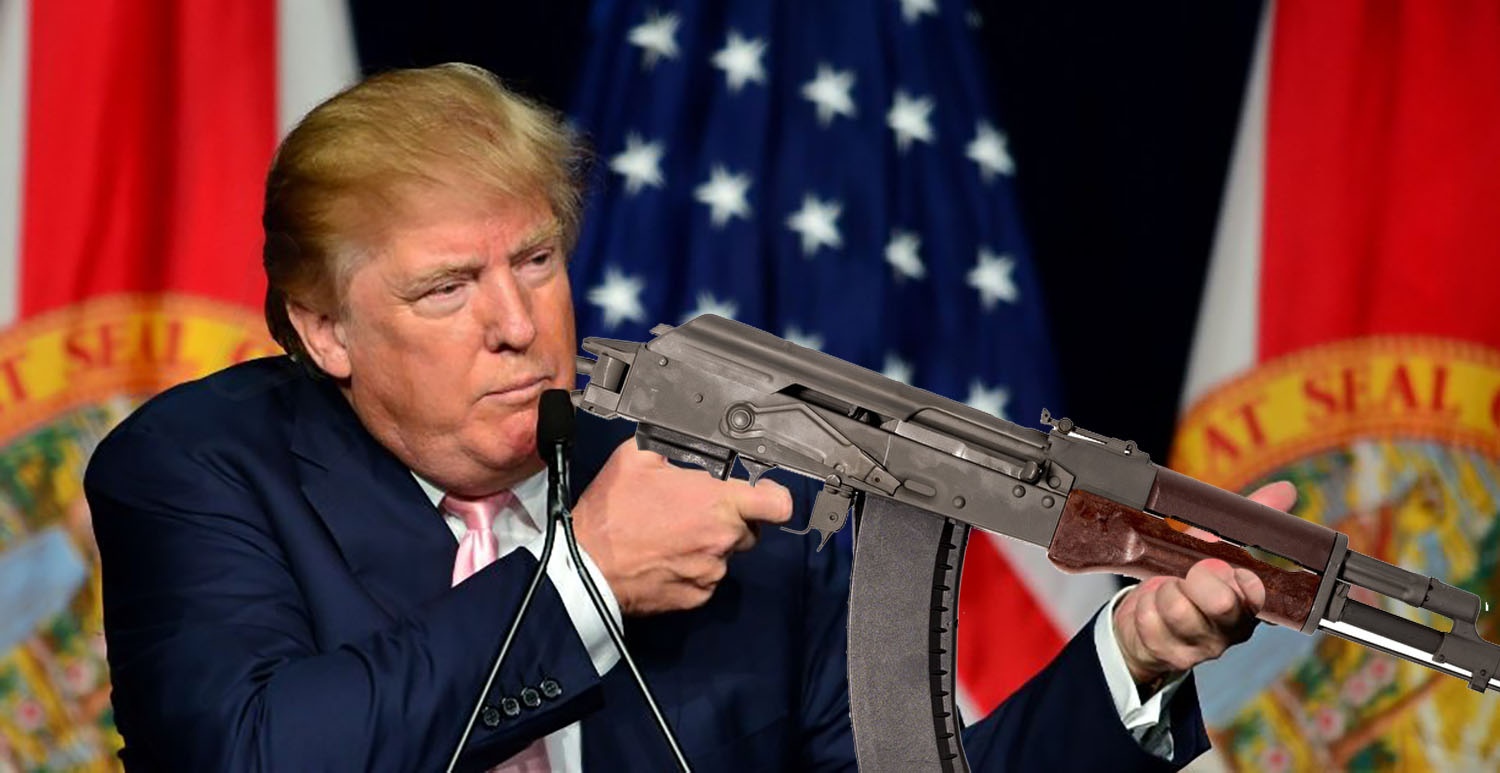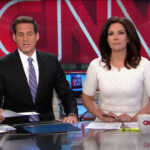In recent years, the term “Trump shooter” has garnered attention due to a variety of incidents, ranging from heated political protests to high-profile acts of violence. Whether factual or fabricated, such events have sparked significant public debate and raised questions about the nature of political discourse, gun violence, and security in the United States. The combination of former President Donald Trump’s polarizing presence in politics and the increasing frequency of mass shootings in the U.S. has contributed to a tense environment where the term “Trump shooter” carries both actual and symbolic weight.
This article will explore the context and significance of the term, highlighting relevant incidents, public perceptions, and the broader implications of violence related to political figures in America.
The Political Climate Surrounding “Trump Shooter” Incidents
Heightened political tensions and a deep divide within American society marked the period following Donald Trump’s election to the presidency in 2016. His polarizing rhetoric and policies, as well as the unprecedented levels of opposition from his critics, created an environment where acts of violence, or the threat of violence, seemed more probable. Terms like “Trump shooter” emerged in this context, where political aggression, both physical and verbal, became more common.
Several notable incidents during Trump’s time in office and afterward involved individuals who were either motivated by their support for or opposition to the former president. The inflammatory political discourse often served as fuel for individuals who were either disillusioned by or ardently supportive of Trump’s policies, leading to tragic consequences in some cases.
Although the connection between Trump and gun violence incidents is not always direct, the frequency of events in which the former president’s name is invoked underscores the growing intersection between politics and violent actions in America.
Critical Incidents Involving Trump and “Shooter” Narratives
While there has not been a specific event officially referred to as a “Trump shooter” incident by authorities, several vital moments have involved individuals committing acts of violence in which the former president’s name or political ideologies played a role. These incidents highlight how Trump’s presence in the political landscape often catalyzed violence, regardless of which side of the political spectrum the perpetrators belonged to.
- The 2017 Congressional Baseball Shooting
One of the most significant incidents involving violence in a politically charged context occurred in June 2017, when a gunman opened fire at a congressional baseball practice in Alexandria, Virginia. The shooter, James Hodgkinson, was an outspoken critic of Donald Trump and his policies. Hodgkinson’s actions left Republican Congressman Steve Scalise critically injured, along with several others. Although the attack was not directly linked to Trump himself, Hodgkinson’s social media posts showed an apparent disdain for the president and the Republican Party.
This incident served as a stark reminder of how political ideologies can drive individuals to commit acts of violence. It also highlighted the dangerous consequences of dehumanizing political opponents, which had become increasingly common in American political discourse during Trump’s presidency.
- The Rise in Threats Against Political Figures
During and after Trump’s presidency, there has been a noticeable increase in threats made against political figures on both sides of the political aisle. Some of these threats were directed at Trump himself, while Trump supporters made others against political opponents. While the FBI and Secret Service take such threats seriously, these incidents reflect the volatile nature of contemporary American politics.
The term “Trump shooter” has, in some cases, been used by conspiracy theorists and media outlets to refer to individuals perceived as being aligned with or influenced by Trump’s rhetoric. However, the complexity of these incidents often makes it difficult to establish a clear connection between Trump and the actions of the individuals involved.
- Pittsburgh Synagogue Shooting
Another tragic incident that stirred public conversations about Trump and violence occurred in October 2018, when a gunman entered the Tree of Life Synagogue in Pittsburgh and killed 11 people. The shooter, Robert Bowers, had made multiple anti-Semitic statements online and had also expressed disdain for Trump despite aligning with certain far-right ideologies.
While Bowers did not commit his heinous act explicitly in Trump’s name, his rhetoric, and actions were often cited in discussions about how Trump’sextremist groups perceived Trump’s anti-immigration policies and nationalist statements. The attack highlighted the broader issues of hate speech and gun violence in America and led to further scrutiny of Trump’s political impact on extremists.
- The Storming of the U.S. Capitol
On January 6, 2021, the storming of the U.S. Capitol by Trump supporters resulted in violent clashes between law enforcement and rioters. Although this event was not a shooting in the traditional sense, it was a moment of intense political violence directly linked to Trump’s rhetoric. The rioters stormed the Capitol in an attempt to overturn the results of the 2020 presidential election, leading to five deaths and numerous injuries.
In the aftermath of the Capitol insurrection, several individuals who participated in the attack were found to have brought firearms and other weapons, intending to commit violent acts. This event further fueled discussions about the connection between Trump’s political influence and the rise of violence from fringe groups.
Gun Violence and Political Polarization
The connection between gun violence and political polarization has been a topic of concern in the United States for years, but the Trump era magnified this issue. According to multiple studies, gun-related deaths increased during Trump’s presidency, and political violence became a more pressing concern. The rise in divisive rhetoric from both political sides only exacerbated the problem.
Trump’s political style, marked by solid language and often provocative statements, has been a double-edged sword. While he energized his base, he also inspired strong opposition, sometimes resulting in extreme actions by individuals who viewed violence as a solution to political differences. The increased accessibility of firearms in the United States, combined with a highly charged political climate, created a dangerous mix.
Furthermore, Trump’s vocal support for the Second Amendment and gun rights led many to associate him with the broader debate about gun control and gun violence. His stance on these issues, including his opposition to stricter gun laws, sparked heated debates and protests, which sometimes escalated into violence.
Public Reactions and Media Coverage of “Trump Shooter” Incidents
The media’s coverage of any incident involving the terms “Trump” and “shooter” is often scrutinized heavily, as these events tend to provoke intense reactions from both supporters and critics of the former president. Depending on the political leanings of the media outlet, coverage can range from emphasizing Trump’s role in inciting violence to defending him and placing the blame solely on individuals who commit these acts.
For instance, right-wing media outlets often frame such incidents as isolated events perpetrated by individuals with mental health issues, while left-leaning outlets may draw a connection between Trump’s rhetoric and the increase in political violence. This polarization in media narratives only deepens the public divide, making it harder to address the root causes of such violence effectively.
The public’s reaction to incidents involving political violence, especially those linked to Trump, is often split along party lines. Trump supporters may view these events as attacks on their beliefs or as attempts to silence conservative voices, while his critics argue that such violence is a natural consequence of Trump’s inflammatory language.
The Importance of Addressing Political Violence
As political tensions in the United States remain high, the country must address the issue of political violence, regardless of who is in office. While Donald Trump may no longer be the sitting president, the legacy of divisiveness and aggressive rhetoric continues to impact the political landscape.
Addressing political violence requires a multifaceted approach, including the promotion of civil discourse, the enforcement of laws that prevent violent acts, and the implementation of policies that address the root causes of extremism and gun violence. Politicians, regardless of their affiliation, must be held accountable for their words and actions, ensuring that they do not contribute to an environment where violence becomes an acceptable form of political expression.
Conclusion: The Lasting Impact of the Trump Era
The term “Trump shooter” may not refer to a specific event, but it symbolizes the broader connection between politics and violence in the United States. While Donald Trump’s presidency has ended, the impact of his rhetoric and the political polarization that grew during his time in office will continue to shape American politics for years to come.
The challenge moving forward is finding a way to reduce political violence while fostering a healthier, more respectful dialogue between opposing sides. Politicians, lawmakers, the media, and the public are responsible for ensuring that democracy is upheld without resorting to violence.










